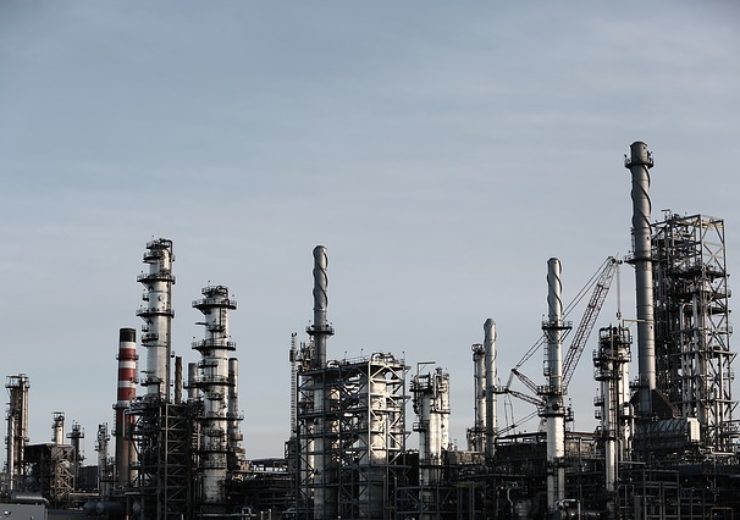Houston — A number of buyers and sellers of natural gas have initiated programs recently to market gas tailored to meet consumers’ demand for a more environmentally friendly product.

In one of the latest examples of this trend, Southern Company subsidiary Virginia Natural Gas said that as of November 1 it would begin purchasing one-fifth of its customers’ annual natural gas supply from certain wells operated by producer Southwestern Energy.
The gas is certified through the Independent Energy Standards Corporation’s (IES) Trustwell Responsible Gas Program, to be produced and transported with an average rate of methane emissions equal to or less than 1% of total gas production volumes.
The transaction represents part of a small but growing niche of the natural gas market, in which end-users can specify that they want to purchase gas with certain attributes, such as gas produced without hydraulic fracturing or gas produced with low levels of methane emissions, according to Jory Caulkins, CEO of Independent Energy Standards (IES), a risk and responsibility ratings firm focused on the oil and gas industry.
While the potential size of the market remains to be determined, “signs point to a pretty vibrant and large market,” Caulkins said in an interview Monday. About 85% of end-use consumers say they would be interested in having an opportunity to buy responsibly produce gas and be willing to pay a 20% premium for it.
Gas utilities and other large end-use gas purchasers seem to be leading the development of this market, Caulkins said. The responsible gas market is evolving along two main pathways: bilateral point-to-point transactions, such as those completed by gas utilities including Virginia Natural Gas and New Jersey Natural Gas; and exchange-based derivative transactions.
Xpansiv CBL Holding Group recently completed what it billed as the first exchange-driven transaction for an energy commodity based on its environmental impacts. In that deal, renewable energy firm South Pole bought responsible gas certificates from Carbon Creek Energy, whose wells have been certified to meet certain environmental standards by IES.
The parties executed the trade on a platform operated by CBL Markets, an Xpansiv affiliate. The transaction involved a package combining the underlying gas commodity with data about its environmentally friendly attributes, Xpansiv CEO Joe Madden said in an interview. (S&P Global, the parent company of S&P Global Platts, is an investor in Xpansiv.)
PRODUCERS TOUT POSITIVE ATTRIBUTES OF THEIR GAS
“We’re talking about the first time you’ve attached attributional information, outside of electricity, to any mainstream commodity,” Madden said. “Think of it like what an MP3 is to music. You’ve created a data format that allows you to combine metadata with primary content the same way you combine a song with artist and title.” Madden said there are a number of other “data-based commodity” trades pending on the platform.
“We create that immutable record of the underlying production and register that so it cannot be double-counted,” he said. “I can’t sell it to you in a contract and turn around and sell it to somebody else tomorrow.”
Caulkins said the market participation of exchanges such as Xpansiv provides the “potential for much deeper and more fluid market.” He said IES partnered with Xpansiv to certify the gas in the transaction had a high Trustwell rating, which requires the operator, Carbon Creek to undergo “an independent review and qualitative process, evaluating the impacts to water, air, land and community.”
To qualify for the satisfactory TrustWell rating, similar to the Leadership in Energy and Environmental Design (LEED) rating for buildings, an operator must submit to onsite inspections and annual renewals to ensure the overall production process as it pertains to such factors as methane emissions and impact on water resources, he said.
Carbon Creek, which produces gas from a naturally fractured formation in Wyoming’s Powder River Basin, received a Gold rating, in part because its gas is produced without fracking, Chris Ginsach, a representative of the company, said in an interview.
TRADING SIMILAR TO RENEWABLE POWER MARKET
In addition, instead of its operations consuming large volumes of fresh water, which must then be disposed of, the operator produces fresh water in association with its gas production, water that can then be used by farmers to irrigate their fields, Ginsach said.
The first public transaction involving gas certified by IES as “responsible” took place in September 2018 when Appalachian producer Southwestern Energy sold an undisclosed volume to local utility company New Jersey Natural Gas. While the market for responsibly produced gas is in its infancy, Madden expects it to grow rapidly as consumers look for energy products with a smaller carbon footprint.
“It looks very similar to the renewable energy market in the early 2000s,” Madden said. That market took off as electricity consumers sought attestations that the electrons they were buying were produced from a wind farm or a solar panel, he said.


